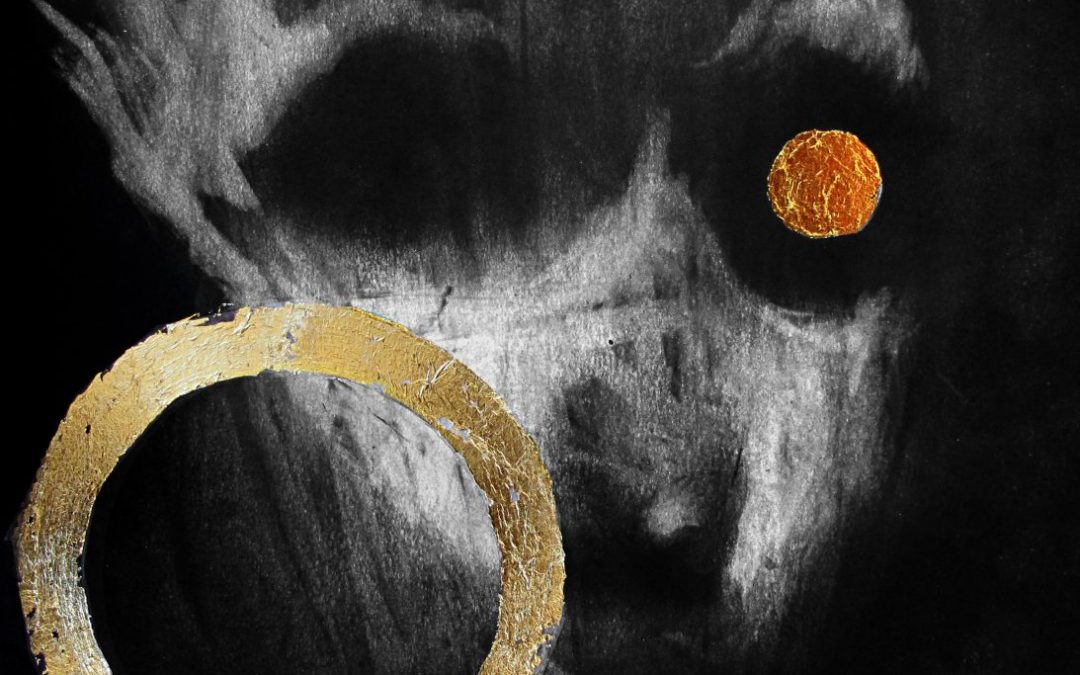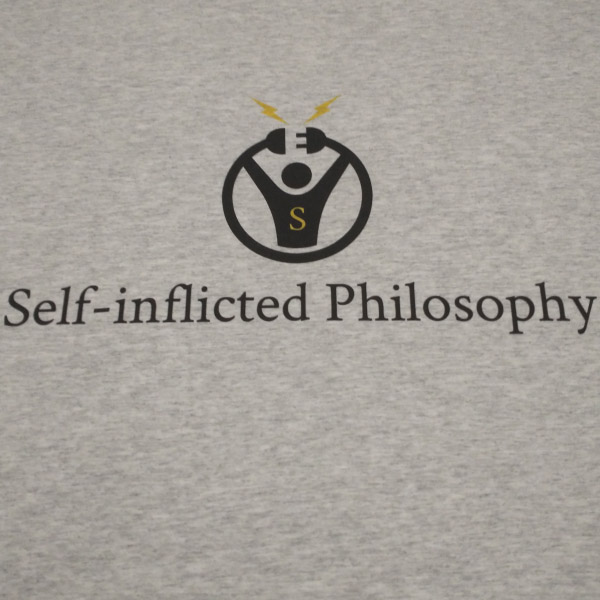Shadow Work: Transforming the Shadow into Sharpness
By Gary Z McGee
“Doctors study medicine. Teachers study education. Healers study darkness.” ~Mark Lundy
Everyone has a dark side. Anyone who tells you otherwise is either selling something, or they’ve repressed their shadow. Or both.
Your dark side, your shadow, is hidden behind your persona. Your persona is your surface front. It’s the mask you show the world. It’s the mask you wear to appease the world. It’s the mask you wear to convince yourself, and to hide the fact, that you are a dangerous animal. It hides the primal aspects of the human condition.
Shadow work is a process of integrating the primal self (shadow) with the practical self (persona). It’s a journey we must each take to discover what unique value we can bring into the world as an integrated human being. It’s a journey behind the persona, behind the mask. It’s a journey down deep into the primal. Into the inner darkness. Into our unrealized potential.
Shadow work is mortal sincerity. It’s radical honesty. It’s vital authenticity. But, foremost, shadow work is not a sprint; it’s a marathon. It must be deeply felt, carefully thought through, and meticulously meditated on.
Understand: digging around in the roots, even for the better, can have massive effects on the entire tree. It’s high risk, but it’s even higher reward. There is danger in shadow work, but it is worth it. The bottom line is: We all benefit from shadow work and not doing it is actually more dangerous than doing it.
In fact, one thing that integration with the shadow reveals is how life itself is one giant gamble. It’s the most essential gamble there is. The shadow teaches us how to become better gamblers, better risk-takers, better strategists, better negotiators, better at handling danger.
But we’re getting ahead of ourselves. Before we can authentically face the shadow of our unconscious, we must first admit the shadow that we are aware of: our lack of personal responsibility.
Admitting a lack of psychological responsibility:
“You have to take seriously the notion that understanding the universe is your responsibility, because the only understanding of the universe that will be useful to you is your own understanding.” ~Terence McKenna
So many of us are disenchanted, nihilistic, depressed, anxious, irrational, and vengeful. And most of us don’t know why. And the why is complicated and painful to recognize. It’s because life does not have meaning without aspiration.
Most of us don’t recognize our lack of meaning, our lack of purpose, our lack of drive. Most of us have no life-affirming purpose, no genuine principles, no hierarchy of values, no self-empowering goal. We’re ambitionless, desireless, aimless, valueless. There’s no upward mobility. All we have is the dangled carrot of the cultural daily grind.
So, the first question is: how do we flip the script? How do we turn the tables? How do we turn our stagnant mobility upward? How do we become a person who is capable of creating meaning?
It’s more of a “where to” than a “how do.” We must go to a place of personal responsibility, a place of honesty and authenticity. This place is the front door of the unconscious. The place we need to go to integrate our shadow. The threshold guardian of which is the cushiony veil of ignorance that has been cast over us to keep us safe in our comfort zone.
It takes fierce courage to face our darkness. It takes ruthless questioning to get past the comfortable “answers” we’ve settled for. It takes tender vulnerability to get beyond the rigid invulnerability that we’ve erected to keep ourselves “safe.” It takes a good sense of humor to withstand the realization that we are the butt-end of a terrible cosmic joke.
But nothing is more important than making the darkness conscious, especially when your goal is healthy integration, aspiration, wholeness, balance, self-actualization, antifragility and enlightenment.
Shadow integration:
“There is no generally effective technique for assimilating the shadow. It is more like diplomacy or statesmanship, and it is always an individual matter. First one has to accept and take seriously the existence of the shadow. Second, one has to become aware of its qualities and intentions. This happens through conscientious attention to moods, fantasies and impulses. Third, a long process of negotiation is unavoidable.” ~Daryl Sharp
The shadow is a symbol for repressed resentment. The shadow is turbulent and fierce. It’s an unbridled furnace of molten energy where all our repressed anger, grief, shame, guilt and wildness has boiled into a raging frenzy inside us.
Our shadow is wild and intuitive. It’s umbilical. In our youth it was necessary to repress it to achieve discipline; in our maturity, it is vital that we integrate it to achieve enlightenment (providence).
Look at the shadow like you would a speck of dirt in an oyster. The only way the speck becomes a pearl is through assimilation into the oyster’s environment. Similarly, the only way the shadow becomes an ally is through assimilation into the environment of the self.
Shadow integration is a meta-analysis of the self. You must travel into the depths with a detached sense of humor.
The practical approach to shadow integration is radical honesty and the ability to observe your resentment in a detached way. When you face the bitter truth within you, your capacity for truth outside you expands. When you face the bitter truth within, you open up a dialogue with yourself that can be extremely useful. This dialogue is the epitome of integration. It’s a sacred confession.
The symbolic approach to shadow integration is alchemical. The Alchemical process has four distinct stages: Nigredo, Albedo, Citrinitas and Rubedo. This is what Jung characterized as the four stages of transformation: Confession, Illumination, Education and Transformation. Nigredo, also called the blackening, is the stage of confession and catharsis. This is where the shadow gets mined for hidden gold. It’s where the burning away of psychological dross takes place.
The psychological process involved in both approaches is shadow work. They will help you become more aware of your own darkness, the darkness of others, and the darkness inherent within the human condition. They will fuel your sense of self-ownership, embolden you in the face of fear, and ignite the drive to explore and master the world both outside and within.
When you have integrated your shadow, you have begun the psychological process of individuation. Depth, rootedness, and stability is born. You become more grounded, more secure in your skin, more independent in your moral judgments, more courageous and self-reliant.
A kind of antifragility emerges. The ability to transform a negative into a positive becomes manifest: such as transforming pain into power, wounds into wisdom, demons into diamonds, setbacks into steppingstones, tragedy into teacher, loss into laboratory, even shadow work into soulcraft.
Best of all: shadow integration gives you self-purpose, and having a purpose quells fear. You become capable of using fear as fuel for the fire of a fulfilling life.
In short: the integration of your shadow moves you toward the ideal of psychological wholeness and this is the ideal that produces the greatness of character that is sorely missing in the modern world. The kind of character that honors all aspects of the human condition. Including, especially, the darkest.
Shadowmaster: The darkness in me bows to the darkness in you. The integrated shadow in me recognizes and honors the integrated shadow in you.
Image source:
Black Gold by Joseph Loughborough
About the Author:
Gary Z McGee, a former Navy Intelligence Specialist turned philosopher, is the author of Birthday Suit of God and The Looking Glass Man. His works are inspired by the great philosophers of the ages and his wide-awake view of the modern world.
This article (Shadow Work: Transforming the Shadow into Sharpness) was originally created and published by Self-inflicted Philosophy and is printed here under a Creative Commons license with attribution to Gary Z McGee and self-inflictedphilosophy.com. It may be re-posted freely with proper attribution, author bio, and this statement of copyright.
– Come Like Us on Facebook – Check us out on Instagram –
– Sign Up for our Newsletter –

















